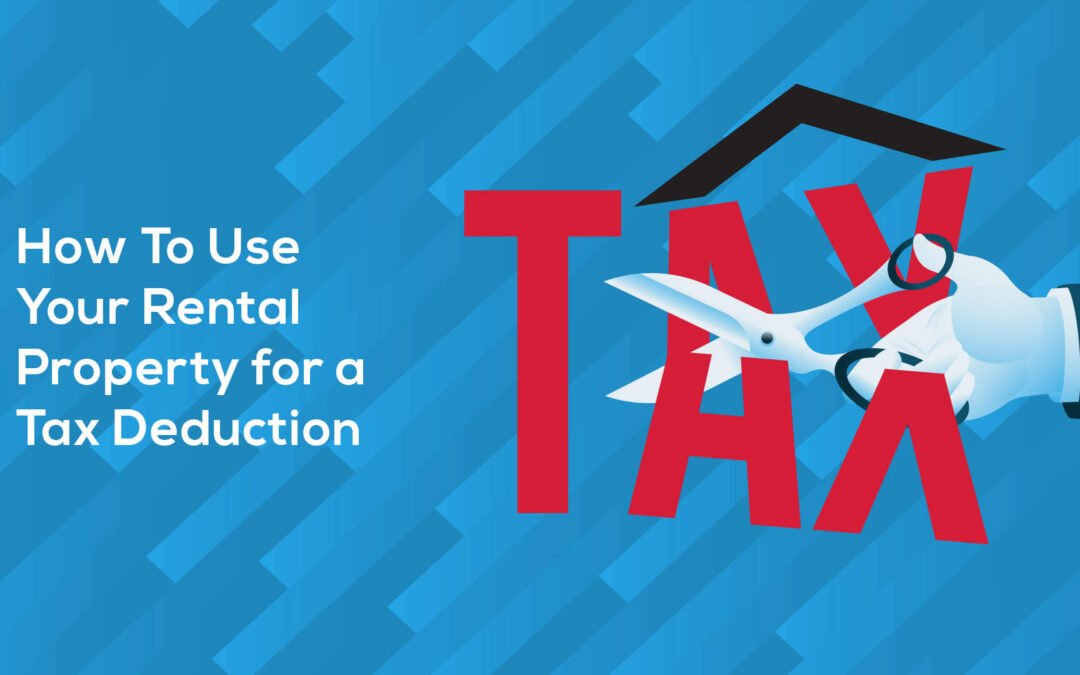
There are many benefits to investing in real estate, especially if you rent out the property for income. However, most people don’t immediately consider the tax benefits. After all, tax laws can be complex, and many rental property investors don’t know what deductions they can claim on their returns. You can use these deductions to reduce the taxes you owe on your rental income and maximize your profits. Keep reading to learn how you can use your rental property for a tax deduction.
Key Takeaways:
- The IRS allows you to claim deductions on your tax return for expenses related to maintaining your rental property.
- Common rental property tax deductions include depreciation, mortgage interest, utilities, repairs, and management fees.
- While you can claim various deductions, there are some items that aren’t tax deductible, such as lost income due to unpaid rent.
- Working with a financial adviser or tax professional can allow you to take full advantage of the available tax deductions on your rental property.
Infinity Investing Featured Event
In this FREE event you’ll discover how the top 1% use little-known “compounders” to grow & protect their reserves. Our Infinity team of experts show you how to be the best possible steward of your finances and how to make your money and investments work for you instead of you working for them. Regardless of your financial situation today, you’ll have a road map to get to where you want to be.
What Can You Deduct on a Rental Property?
When you invest in real estate and rent out the property to tenants, you must pay taxes on the income you make. This includes rent payments and other rental income, such as advance rent, security deposits that you keep, lease cancelation payments, expenses that a tenant pays, and the value of services a tenant provides in place of rent.
If you receive income for a rental property, you can deduct certain expenses on your tax return. According to the Internal Revenue Service, you can deduct expenses related to managing, conserving, and maintaining the rental property. These include both ordinary business expenses and necessary expenses, such as maintenance and utilities.
Here are eight common rental property deductions you can claim to reduce your taxable income.
Depreciation
Wait a minute — you’ve invested in real estate because property increases in value, so why would you deduct depreciation on your tax return? It’s true that property values usually appreciate over time. But in terms of tax laws, depreciation refers to the wear and tear of a property over its useful life. For rental properties, the IRS declares the useful life to be about 27.5 years.
The IRS lets you depreciate your rental property if you meet the following requirements:
- You own the property.
- You use the property for a business or income-producing activity, including renting it.
- The property has a determinable useful life. In other words, it must be property that wears out, gets used up, becomes obsolete, or loses value due to natural causes.
- The property will last longer than one year.
You deduct depreciation over the life of the property by claiming it each year on your tax return. It’s important to note you can only deduct the depreciation of the property, not the land. The process of deducting depreciation can be complex, so it’s a good idea to consult with a tax adviser if you plan to claim this deduction.
Repairs and Maintenance
Repairs and maintenance refer to the work you do to keep the property in good condition. For example, if you fix a broken garbage disposal, this is a deductible cost. Other examples of repairs and maintenance include painting a unit, repairing a toilet, installing new light bulbs, and fixing a damaged door. These repairs keep the property rentable, but they don’t add significant value. You can deduct these expenses in the year they occur.
However, it’s important to know the difference between deductible repairs and significant improvements. The IRS considers major upgrades to be capital improvements, and you can depreciate those expenses over the property’s useful life. If you deduct capital improvements instead, the IRS might flag your tax return.
Examples of capital improvements include:
- Additions, such as bathrooms, bedrooms, decks, or garages.
- Landscaping.
- A new roof.
- Plumbing.
- Storm windows.
- Electrical wiring.
- Heating and air conditioning.
- Flooring.
- Insulation.
- Security systems.
Property Taxes
Most rental property investors can deduct the property taxes they pay. For state and local taxes, you can deduct up to $10,000, or $5,000 if you’re married and filing separately. If you pay more than that, you can’t deduct the additional amount.
Depending on your rental property’s location, you may pay other taxes that you can deduct on your return. For example, some jurisdictions charge an occupancy tax for short-term rentals. You can usually deduct these in addition to property taxes.
Mortgage Interest
If you pay a mortgage on your rental property, you can deduct the payments you make toward interest. According to the IRS, mortgage interest on a rental property is a business expense. Each year, your mortgage company should send you a Form 1098 that lists how much you’ve paid in interest. You can also find your interest payment on a monthly statement and multiply that by 12. You can report this interest on the IRS Schedule E form.
Utilities
The IRS considers utilities a necessary expense for rental properties, so you can deduct these payments on your tax return. Deductible utilities include gas, electricity, water, heating and cooling, and internet. If you pay for these utilities directly, you can deduct them as expenses. If tenants pay for utilities, you can still deduct them during months when a unit or property is unoccupied since you’ll be on the hook for those payments.
The exception for utility deductions is if you live on the property and rent out the other units. In this case, you can only deduct the utilities that your tenants use, not your own utility expenses.
Insurance
When getting a mortgage for your rental property, a lender may require you to have insurance. Insurance premiums are a tax-deductible expense. You can deduct homeowners insurance and other necessary insurance, such as liability. Additionally, if you employ people as a rental property owner, you can deduct the insurance costs you pay for them. These might include health insurance and workers’ compensation.
Management Fees
Management fees include the expenses you pay to manage your rental property. You can claim these fees as a deduction whether you manage the property yourself or hire someone else to do it. If you manage the property on your own, you must keep track of all the expenses you pay to maintain it. These might include costs related to snow removal, lawn care, or painting.
Another option for rental property investors is to hire a property manager who oversees the rental. In this case, you can deduct whatever you pay that person to manage the property. If you hire a management company, the company will be responsible for tracking those expenses for you.
Advertising
As a rental investor, you know it takes hard work to find tenants. You can deduct the costs of marketing and advertising to attract new renters. These expenses might include:
- Flyers or brochures that you print to distribute to potential tenants.
- Advertisements you place, such as social media ads or billboards.
- Costs related to an open house, such as signs and refreshments.

What’s Not Tax-Deductible on a Rental Property?
As you can see, there are many deductions you can claim to reduce the taxable income on your rental property investment. However, not everything related to your rental is tax deductible. Typically, you cannot claim the following deductions on your tax return:
- Lost income due to vacancies or unpaid rent.
- Personal expenses, such as food.
- Fines or penalties related to the rental property, such as HOA violations.
By knowing what is and isn’t deductible on your rental property, you can claim the right expenses on your annual tax return. There are many deductions you can claim to reduce your taxable income and maximize your investment. Since claiming deductions can be a complex process, consider working with a tax professional or financial adviser who can provide additional support and guidance during tax season.
Learn More About Real Estate Investing
Investing in real estate can be a great way to generate passive income and grow your wealth. If you’re interested in learning more about this area of investing, become an Infinity Investing member. As part of your membership, you’ll receive access to exclusive perks and resources, including on-demand training, strategy sessions, and weekly stock rooms. Purchase a membership today and start building your wealth through real estate.
Infinity Investing Featured Event
In this FREE event you’ll discover how the top 1% use little-known “compounders” to grow & protect their reserves. Our Infinity team of experts show you how to be the best possible steward of your finances and how to make your money and investments work for you instead of you working for them. Regardless of your financial situation today, you’ll have a road map to get to where you want to be.

